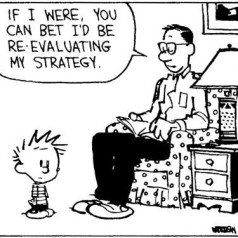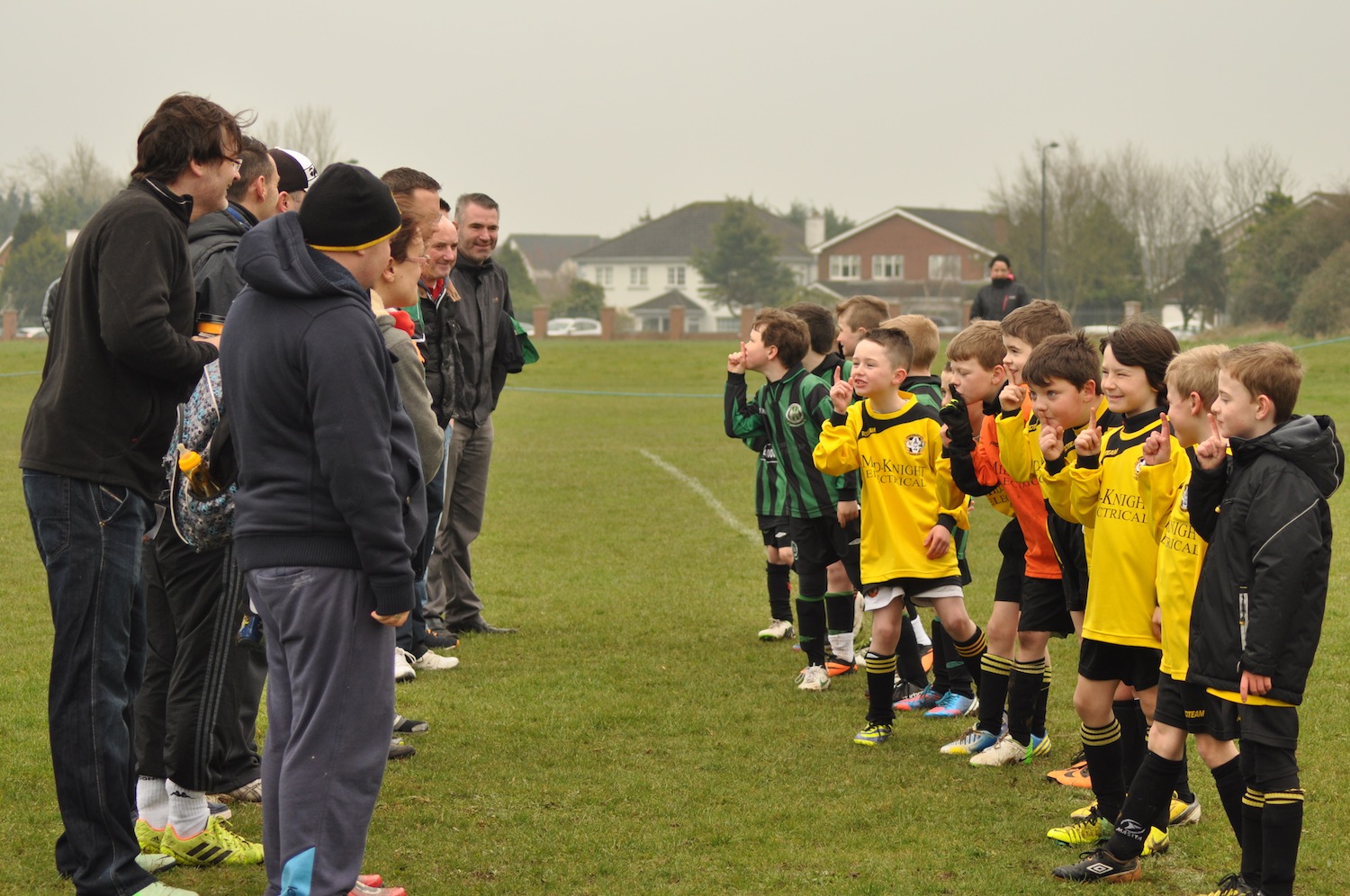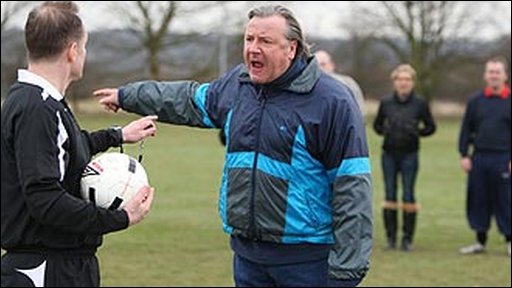Our kids can no longer play with the freedom we played with. In fact, I believe our kids will never have the freedom we had as kids.
Milk Run
When I was 6/7, I use to help the milk man. I’d leave my house at 6.45am and head off with a man unknown to my parents, – well they knew him as the milk man, his first name and that was pretty much it. They didn’t have a mobile number for him, he wasn’t Garda vetted and they didn’t even know what time I’d be back. Like me, most of us went out in the morning and didn’t come back until dinner time.
“Children left to their own devices will gravitate towards the things they love, and they love being outdoors. For every really miserable wet week, there’s been some sort of amazing experience outdoors that we’ve had together,”
As a child I had so much freedom, I spent most of my boyhood life outdoors. From the greens to the beaches eventually back to the greens. I roamed within 2 square miles of my house. Most kids wander freely only as far as their garden gate and even playing out the back unattended can be unique experience for a lot of kids.
Let Kids Explore
Back then we explored our world, we got mucky, we ran after each other with worms, we climbed trees, walls, fences, we jumped far and leapt over hedges. We explored dangerous places and frolicked in austere ones such as cemeteries and building sites. We even had pocket knives, sling shots and sticks. I can say for sure that I didn’t feel like my bedroom defined me as a child. My outdoor space did. Our children will be much more defined in their psyches by their indoor space than my brothers and sisters or I were.
A mothers view, “Peer pressure is very strong,” agrees Helen. “You think you can make the world afresh for your children, you think you can make your own rules for your children, but you can’t.”
“Society’s fears of the risks that lurk outside for children – from ponds to stranger danger – may be overwrought and irrational, but anxiety (the defining characteristic of British families, according to a Unicef report on child wellbeing) about traffic is more logical. The growth in road traffic is probably the decisive factor preventing children playing on the streets as they once did. The Bonds live on a quiet residential road, but the traffic is still relentless, says Bond. “Until they are a lot older, I don’t feel comfortable with them cycling or walking around on the roads outside.”
You see, we are all the same. Not only is it British parents who feel like this but, us Irish do also in fact the worlds parents do. The stats show that the world is no more dangerous then it was was the 50’s but yet we fear everything. Our kids don’t get enough time outdoors and when they do, it is controlled by adults. Adults control everything their children do, you go to any playground and most adults are shadowing their children, telling them what to do and were not to go. We take them home when we’ve had enough. Today’s child just don’t move enough and when they do we shadow and tell them to slow down. Then we wonder why they lack balance and coordination in sport.
Where Are All the Mucky Kids?
Isn’t it amazing, that we tell our kids not to pick up dirt, a slug, a snail. We tell them to ‘get up off the floor’, we stop them from exploring all the time. From a very young age we teach to be scared of spiders, we pass on our fears to them. If we react to anything our kids will follow without allowing them to decide for themselves. The natural world is fun and we should be allowing our kids to explore it more, a lot more.
“You know it is summer when everyone starts worrying about children not playing outside unsupervised anymore. A report from the Future Foundation says that the average amount for eight- to 10-year-olds playing unsupervised in the summer holidays has fallen from 55 “occasions” in the 1950s and 1960s to 24 now. Cue parental nostalgia for their own unsupervised summer holidays.”
I’m sure these figures are wrong, who in their right mind is letting 8-10 years old out 24 times during the summer and when would it be convenient to send the social services around? 🙂
 Parents Back off, give the kids time to explore and discover
Parents Back off, give the kids time to explore and discover
What do children need, security, self-expression, discipline etc, yet there’s never mention of one of the most important – privacy. Basically, there’s too much parental ego flying around. Modern parents need to learn that it is not all about them, centre-stage, being great hands-on parents. Sometimes, it is really about parents staying away and allowing the kids some freedom.
Could you imagine a game at the weekend with no parents on either sidelines. I’m dreaming, so are the refs!!
“You can’t teach creativity; all you can do is let it blossom, and it blossoms in play.” – Peter Gray
Read a debate, I just had about this quote here DEBATE
Could you imagine if one of our parents showed up when we were playing- “This looks fun! Can I play too?” To reproduce anything close to the freedom, we as children used to enjoy, modern parents need to back off. What do kids love more now a days? ‘A play date’, and ‘a sleepover’, these are the things kids dream for and a successful one is when the kids are barely aware you’re there. It’s all about invisible supervision, the passive parental presence. Independent adventure was central to a child’s development when we grew up, now it’s parental/child adventure……which is great, but not every-time kids play.
Adrian Voce, director of the campaign group Play England, said:
“While some fears – such as ‘stranger danger’ – may not be based on strong evidence, there is no doubt that the public realm is now very unfriendly to children. “For all of human history the way children have learned about the world has been to explore it. If they get everything they know from television and classrooms, they are missing out on a fundamental part of the learning experience.”
Margaret Morrissey, from the ParentsOutloud support group, said:
“I feel terribly sorry for parents and children today as we have allowed a society to develop in which the freedom of childhood has been lost.”
Sports
This reflect how we react to kids on playing fields, we want them to do things we can do (and in most cases can’t do) without letting them discover it for themselves. We expect them to understand the game of football, before they can understand it for themselves. As we control so much of their lives, we think it’s ok to control their sport and how they learn and develop. We control their recreational time from start to finish, we bring them to it, we give our opinions during and after it and we don’t allow the kids freedom to think and explore for themselves.
What the children see on a sports pitch and what you see is completely different. Even the view you have of the game and the view they have, is different. The sports pitch can in some case be the only place a child has the opportunity to experience freedom, make mistakes but even that is taken away by the consistent actions and demands by adults from the sidelines.
In reference to school, we don’t expect kids to write sentences in junior infants, when they are still learning letters. Teachers allow the kids to develop over time in a structured way, it’s only kids sports were we seem to demand more sooner. We want them to play and think like adults but we forget they’re kids.
So, my point is to let the kids play with freedom, give them some space alone and allow them explore.
Psychologist Peter Gray writes, “playing is learning. At play, children learn the most important of life’s lessons, the ones that cannot be taught in school. To learn these lessons well, children need lots of play — lots and lots of it, without interference from adults.”
He goes on to say “You can’t teach creativity; all you can do is let it blossom. Little children, before they start school, are naturally creative. Our greatest innovators, the ones we call geniuses, are those who somehow retain that childhood capacity, and build on it, right through adulthood. Albert Einstein, who apparently hated school, referred to his achievements in theoretical physics and mathematics as ‘combinatorial play’.”
“A great deal of research has shown that people are most creative when infused by the spirit of play, when they see themselves as engaged in a task just for fun.”
“Children today are cossetted and pressured in equal measure. Without the freedom to play they will never grow up.” – Peter Gray
Read Peter Gray’s BLOG
-End
I always like to hear your opinions. Please comment below or email me info@thecoachdiary.com If, you don’t have anything to add then please forward this on to a friend. Thanks for reading.
I’m also on twitter @Coachdiary









